News
-
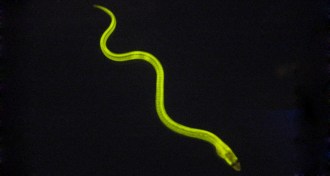 Chemistry
ChemistryAn eel’s glow could illuminate liver disease
Fluorescent protein binds to bilirubin, a compound the body must eliminate.
-
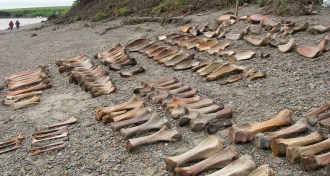 Archaeology
ArchaeologyAncient Siberians may have rarely hunted mammoths
Occasional kills by Stone Age humans could not have driven creatures to extinction, researchers say.
By Bruce Bower -
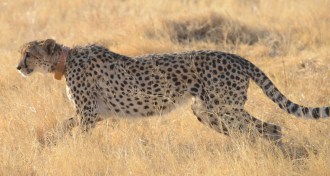 Life
LifeIn the real world, cheetahs rarely go all out
Famous for speed, the big cats actually rely on acceleration and maneuverability to capture prey.
By Susan Milius -
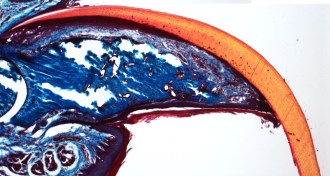 Life
LifeNail-generating tissue also regrows fingertips
Stem cells spur return of amputated digits in mice
-
 Health & Medicine
Health & MedicineHeaders linked to memory deficit in soccer players
Abnormalities in three brain regions found among those who head the ball most frequently.
By Nathan Seppa -
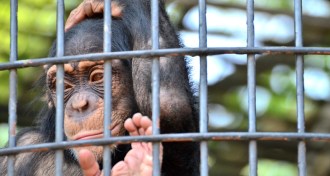 Science & Society
Science & SocietyChimps in captivity may soon join endangered species list
Proposal would extend protections to both wild and captive primate populations.
By Meghan Rosen -
 Tech
TechFaster memory could accelerate computing
Experimental microchip improves reliability and speed of writing and reading data.
By Andrew Grant -
 Animals
AnimalsNow-extinct wolf may be ancestor of modern-day dogs
No strong signs of canine ancestry among living grey wolves.
-
 Tech
TechCamera captures voices without a microphone
Throat movements get decoded to reveal sounds of speech.
By Meghan Rosen -
 Neuroscience
NeuroscienceResearch prods brain wiring underlying compulsive behavior
Complementary studies, focusing on repetitive grooming in mice, offer potential for new treatment strategies in humans.
-
 Health & Medicine
Health & MedicineTalk therapy helps Congolese victims of sexual violence recover
Groups sessions using a cognitive processing approach work better than individual support counseling, a study finds.
By Nathan Seppa -
 Quantum Physics
Quantum PhysicsLight breaks up to cloak gaps in time
Method could hide messages without sender’s knowledge.
By Andrew Grant